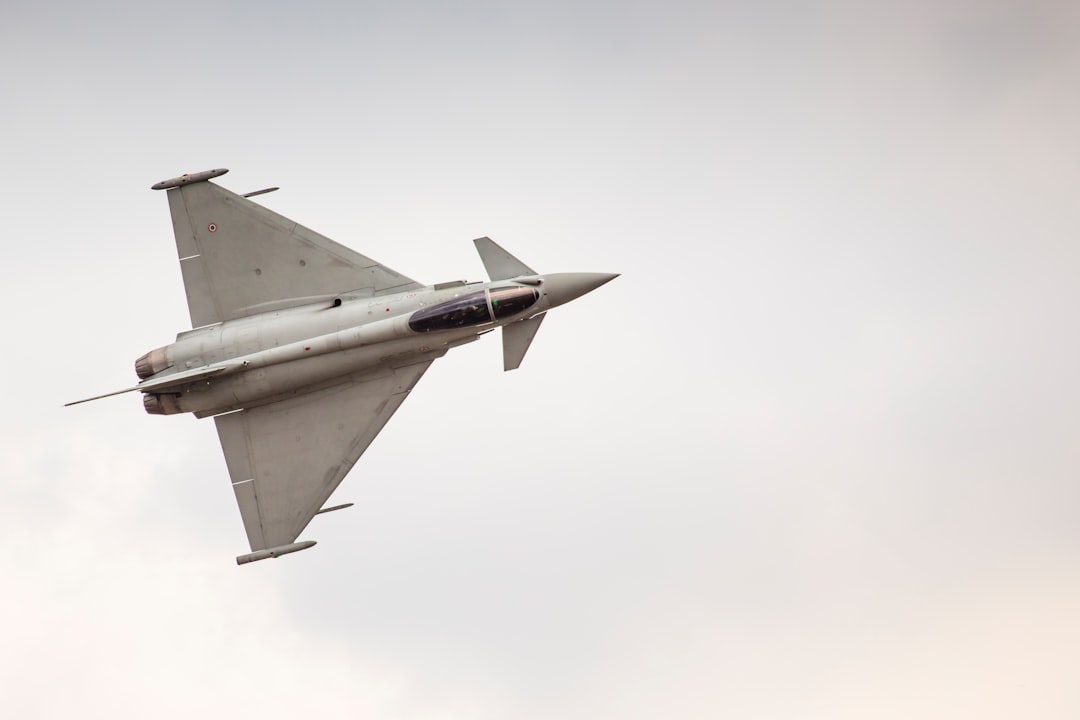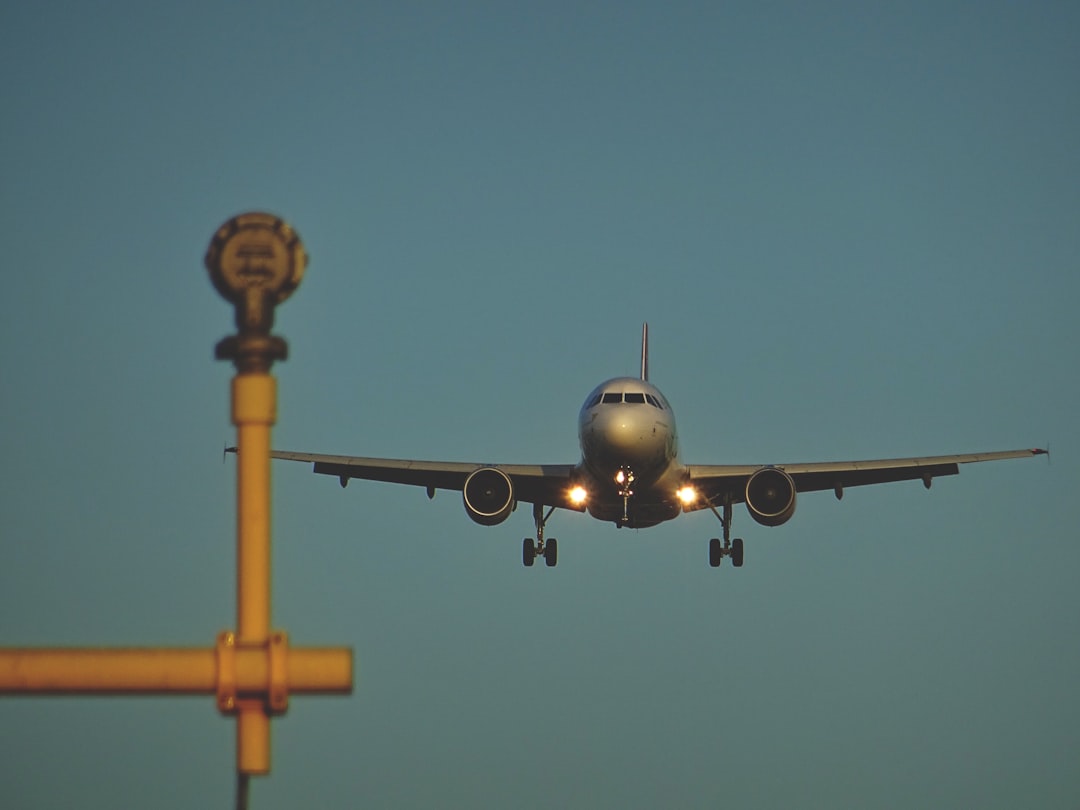Ex-TWA Flight Attendants' Seniority Battle Inside American Airlines Union's Contentious Stance
Ex-TWA Flight Attendants' Seniority Battle Inside American Airlines Union's Contentious Stance - Ex-TWA Flight Attendants' Seniority Battle Inside American Airlines Union's Contentious Stance
The contentious battle between former TWA flight attendants and American Airlines over seniority rights has been ongoing since the airline's acquisition of TWA in 2001.
Despite numerous legal challenges by the ex-TWA flight attendants, the courts have consistently ruled in favor of American Airlines, leaving the former TWA employees with lower seniority compared to their American counterparts.
The Association of Professional Flight Attendants (APFA), the union representing American Airlines flight attendants, has faced criticism for its role in this dispute, with the recent decision to hold a meeting at the TWA Hotel seen as insensitive by some.
The long-running dispute between former TWA flight attendants and American Airlines over seniority rights has resulted in multiple lawsuits, all of which have been decided in favor of American Airlines.
When American Airlines acquired TWA in 2001, the former TWA flight attendants were integrated into AA's workforce with lower seniority compared to their AA counterparts, sparking a contentious dispute between the two groups.
Despite filing numerous lawsuits over the years, the ex-TWA flight attendants have been unable to regain their seniority, as federal appeals courts have ruled that American Airlines had no duty to restore their seniority.
In a recent lawsuit, a group of ex-TWA flight attendants sought to require the Association of Professional Flight Attendants (APFA) and American Airlines to give them seniority numbers based on their original hiring dates at TWA, but this effort was also unsuccessful.
The APFA, the union representing American Airlines flight attendants, has faced criticism for holding a meeting at the TWA Hotel, which is located near the site of the former TWA flight attendant base, as this has been seen as insensitive given the APFA's actions that negatively impacted the seniority of ex-TWA flight attendants.
The legal battle over the seniority of ex-TWA flight attendants has been ongoing since 2001, and despite their persistent efforts, the ex-TWA flight attendants have been unable to overturn the decisions that have favored American Airlines in this long-running dispute.
Ex-TWA Flight Attendants' Seniority Battle Inside American Airlines Union's Contentious Stance - Subheadings:
The ongoing dispute over seniority between American Airlines and the former TWA flight attendants has continued to be a contentious issue within the airline industry.
Despite a federal appeals court ruling that American Airlines had no duty to restore seniority to the ex-TWA employees, the former TWA flight attendants have remained steadfast in their fight for seniority rights.
The American Airlines Union's stance on this matter has drawn significant criticism and scrutiny from those affected by the airline's acquisition of TWA.
The American Airlines Union has been at the center of a contentious stance on seniority, particularly with regards to former TWA flight attendants.
This dispute dates back to 2001 when the union took a "boot to the throat" approach towards ex-TWA attendants during the airline's acquisition by American.
In 2013, the International Association of Machinists and Aerospace Workers (IAMAW) announced that it would represent American Airlines flight attendants, a significant change from the prior representation by the Transport Workers Union (TWU).
The IAMAW's 2014 contract with American Airlines was approved by its members and included increased pay and benefits.
However, the treatment of seniority for ex-TWA flight attendants remained a lingering issue.
American Airlines refused to recognize the seniority rights of the ex-TWA flight attendants, leading to concerns that they would be demoted or laid off, despite the IAMAW's efforts to negotiate and protect their seniority.
The dispute over seniority has remained contentious, with the IAMAW arguing that the seniority rights of the ex-TWA flight attendants should be recognized and respected, while American Airlines claims that the union's contract does not require it to honor seniority claims from previous airlines.
The IAMAW has filed grievances and contested arbitration with American Airlines over the seniority issue, but it remains unresolved as of The federal appeals court has ruled that American Airlines had no duty to restore seniority to former TWA employees, a decision that has been met with ongoing discontent from ex-TWA flight attendants who have been fighting for their seniority rights for over two decades.
Ex-TWA Flight Attendants' Seniority Battle Inside American Airlines Union's Contentious Stance - TWA Acquisition and Seniority Stripping
The seniority dispute between former TWA flight attendants and American Airlines has been a long-standing issue since the acquisition of TWA by American Airlines in 2001.
Despite attempts to resolve the matter, such as a 2016 agreement, concerns over the fairness of the seniority system and its implementation have continued to linger.
In 2021, a federal appeals court ruled that American Airlines had no duty to restore the TWA flight attendants' seniority, siding with a lower court decision that the plaintiffs were not entitled to the seniority order they had prior to the TWA acquisition.
The acquisition of Trans World Airlines (TWA) by American Airlines in 2001 sparked a long-standing dispute over seniority rights between former TWA flight attendants and the American Airlines union.
In 2021, a federal appeals court ruled that American Airlines had no duty to restore the seniority order of former TWA flight attendants, siding with a lower district court decision.
The seniority list reset after the acquisition caused significant displacement for TWA employees, leading to a battle over the application of seniority rules during flight attendant bidding for schedules.
Despite the agreement, concerns related to its implementation and fairness have persisted, leaving the potential for future disputes between the affected attendants and the American Airlines seniority system.
In 2011, a lawsuit by former TWA pilots against American Airlines and its pilots union over seniority in the airline's bankruptcy was thrown out by the US Court of Appeals for the Second Circuit.
Some former TWA flight attendants have argued that their union, the Association of Professional Flight Attendants, hurt their cause after American Airlines took over, and they continue to struggle to stay in the air.
A group of former TWA flight attendants sued American Airlines and their current union, the Association of Professional Flight Attendants, over seniority in a US District Court in Brooklyn.
Ex-TWA Flight Attendants' Seniority Battle Inside American Airlines Union's Contentious Stance - APFA Union's Stance Against Ex-TWA Attendants
The APFA Union has taken a contentious stance against former TWA flight attendants following American Airlines' acquisition of TWA in 2001.
The union unilaterally stripped the ex-TWA attendants of their seniority, sparking an ongoing dispute.
Ex-TWA attendants have argued that their seniority should be reinstated based on their tenure, but federal mediators have been unable to resolve the issue.
Negotiations between the APFA and American Airlines continue, with a potential strike by American Airlines flight attendants looming as a result of the union's actions.
The seniority dispute between APFA and ex-TWA flight attendants has been ongoing for over 23 years, since American Airlines acquired TWA in The APFA union's decision to strip ex-TWA flight attendants of their seniority has resulted in a significant loss of benefits, including lower pay, reduced vacation time, and limited access to desirable flight routes.
Ex-TWA flight attendants have been seeking seniority numbers based on their original hire dates, which would give them the same seniority as American Airlines flight attendants with similar tenure.
The lawsuit filed by ex-TWA flight attendants against American Airlines and APFA in 2014 was eventually dismissed, with a federal appeals court ruling in favor of the airline and the union.
Federal mediators have intervened multiple times to resolve the dispute, but a resolution has yet to be reached, leading to ongoing tensions between the union and ex-TWA flight attendants.
The APFA union represents around 13,000 American Airlines flight attendants, making it one of the largest flight attendant unions in the industry.
Ex-TWA flight attendants have taken to picketing outside the APFA headquarters to protest the union's stance on their seniority, highlighting the deep-seated frustration and anger among affected employees.
The seniority dispute has also led to concerns about working conditions, with ex-TWA flight attendants arguing that the APFA's actions have negatively impacted their job security and overall well-being.
The ongoing dispute has raised questions about the role of unions in protecting the rights of all employees, not just those who are already part of the union, and whether unions can sometimes prioritize the interests of one group over another.
Ex-TWA Flight Attendants' Seniority Battle Inside American Airlines Union's Contentious Stance - Legal Battles and Lawsuits for Seniority Restoration
The legal battle over seniority restoration for former TWA flight attendants at American Airlines has come to an end.
After a long and contentious dispute that lasted over two decades, the courts have ruled that American Airlines had no obligation to reinstate the seniority rights of the former TWA employees.
This decision upholds a previous lower court ruling, further cementing the airline's stance on the matter.
The case highlights the complex and often challenging dynamics involved in corporate mergers and acquisitions, where the rights and benefits of employees can become a significant point of contention.
The legal battle over seniority rights between former TWA flight attendants and American Airlines has been ongoing for over two decades since the 2001 acquisition of TWA.
Despite several lawsuits and claims of discrimination, American Airlines was not legally required to restore the seniority structure of former TWA flight attendants after the merger, as affirmed by the recent court decision.
The dispute has echoed previous legal battles involving TWA employees who faced challenges in the aftermath of the merger, with some cases being settled or dismissed.
A jury in California ruled that a clothing company should pay over $1 million to four American Airlines flight attendants who claimed that chemicals used in their uniform production caused health issues.
The seniority dispute highlights the complexities and challenges faced by employees during airline mergers and acquisitions, where the integration of seniority structures can lead to contentious legal battles.
The outcome of the seniority dispute between former TWA flight attendants and American Airlines is seen as a precedent-setting case, influencing how similar conflicts may be resolved in the future.
The legal battle has not only impacted the flight attendants' careers but also the overall morale and workplace dynamics within the merged American Airlines organization.
Experts suggest that the seniority issue could have broader implications for employee rights and protections in the airline industry, particularly during times of significant corporate restructuring.
The case underscores the importance of clear and fair integration policies for merging airlines, as well as the need for stronger employee safeguards to prevent prolonged legal battles.
The resolution of the seniority dispute, though favoring American Airlines, highlights the ongoing challenges in balancing the interests of both the company and its employees during such complex corporate transactions.
Ex-TWA Flight Attendants' Seniority Battle Inside American Airlines Union's Contentious Stance - Federal Appeals Court Ruling against Ex-TWA Attendants
The federal appeals court has ruled in favor of American Airlines in a lawsuit brought by former TWA flight attendants over seniority rights.
The court affirmed that the union security clause had survived the TWA acquisition and that the plaintiffs were not entitled to the seniority order they had lost.
Additionally, a group of former TWA pilots have also lost their lawsuit against American Airlines and its pilots union, alleging a conspiracy to strip them of their seniority.
The ruling has significant implications for the airline industry, as it allows American Airlines to manage its seniority systems internally, rather than having the unions dictate the terms.
The federal appeals court ruling was in response to a lawsuit brought by former TWA flight attendants against American Airlines, alleging that the airline violated its obligation to integrate seniority lists fairly following the merger.
The court affirmed the lower district court's ruling that the union security clause had survived the period of self-help, meaning the plaintiffs were not entitled to the seniority order that had been lost when TWA was acquired by US Airways in A related lawsuit, filed by former TWA pilots against American Airlines and its pilots union, was also thrown out by the US Court of Appeals for the Second Circuit, who found no evidence of a conspiracy to strip these pilots of their seniority.
The Association of Professional Flight Attendants, the union representing American Airlines flight attendants, has faced criticism for holding a meeting at the TWA Hotel, which some see as insensitive towards former TWA employees who feel they have been treated unfairly since the merger.
The federal appeals court's ruling stated that the Transport Workers Union (TWU) and the International Association of Machinists and Aerospace Workers (IAM) exceeded their authority in negotiating the 2014 seniority integration agreement, and that American Airlines has the right to manage its seniority systems internally.
The court's decision has significant implications for the airline industry, as it establishes that unions cannot dictate seniority systems for employees of merged airlines, including former TWA attendants.
The ruling is seen as a victory for American Airlines, as it allows the airline to have more control over its seniority systems, rather than having unions exert control over these systems.
The lawsuit involved over 13,000 former TWA flight attendants who are still working for American Airlines, and the court's decision has a direct impact on their seniority rights.
The federal appeals court's ruling upheld the previous district court's ruling, which had stated that the unions had no legal authority to dictate seniority systems for American Airlines employees.
The court's decision has broader implications for the airline industry, as it sets a precedent for the role of unions in determining seniority systems for merged airlines.
The ruling is significant in the ongoing battle between American Airlines and its unions over the integration of seniority systems following mergers and acquisitions in the industry.
Ex-TWA Flight Attendants' Seniority Battle Inside American Airlines Union's Contentious Stance - Two Decades of Ongoing Seniority Dispute
The ongoing seniority dispute between American Airlines and former TWA flight attendants has been a contentious issue for over two decades.
Despite court rulings and mediation efforts, the matter remains unresolved, causing continued tension and the potential for future industrial action.
The fundamental concern centers around the integration of seniority and the perceived unfair disadvantage to current American Airlines flight attendants.
As the negotiations between the airline and the union representing the affected employees have reportedly stalled, the controversy surrounding this long-standing dispute continues to linger.
The seniority dispute dates back to 2001 when American Airlines acquired TWA, leading to the stripping of seniority rights for former TWA employees.
A federal appeals court ruling in 2016 sided with American Airlines, stating the airline had no duty to restore the seniority of TWA flight attendants after the merger.
The ongoing legal battles and negotiations between the airline and the union representing the affected employees have lasted for over two decades.
Concerns have been raised that recognizing former TWA employees' seniority would unfairly disadvantage current American Airlines flight attendants.
Mediation efforts between the parties have reportedly stalled, contributing to the longevity of the dispute.
In 2021, it was reported that the most junior American Airlines flight attendants were forced to work early in the pandemic, while senior employees sat at home and received pay.
In 2023, mediators rejected a union's request that could have cleared the way for a year-end strike by American Airlines flight attendants, further prolonging the conflict.
The seniority dispute has resulted in ongoing tension and the potential for future industrial action between the affected employees and the airline.
The federal appeals court decision in 2016 affirmed that the plaintiffs, the former TWA flight attendants, were not entitled to the seniority order that had been lost when TWA was acquired by American.
The complexity of the seniority integration process and its impact on the existing workforce at American Airlines has been a significant contributing factor to the prolonged nature of the dispute.
The legal challenges and negotiations surrounding the seniority dispute have been a significant drain on the resources and attention of both the airline and the union.
Despite multiple attempts to resolve the issue, the seniority dispute remains unresolved, with the affected employees continuing to seek a satisfactory outcome.
Ex-TWA Flight Attendants' Seniority Battle Inside American Airlines Union's Contentious Stance - Ex-TWA Flight Attendants' Unsuccessful Attempts to Regain Seniority
Ex-TWA flight attendants have faced an uphill battle in their efforts to regain the seniority they lost when TWA was acquired by American Airlines in 2001.
Despite numerous legal challenges, the courts have consistently ruled in favor of American Airlines and its flight attendants' union, the Association of Professional Flight Attendants (APFA), effectively denying the ex-TWA employees their original seniority status.
In 2001, American Airlines acquired TWA, leading to a merger of the two airlines' flight attendant workforces.
Former TWA flight attendants attempted to regain their seniority status after the merger, but a federal appeals court ruled that American Airlines had no duty to restore the seniority they had lost.
The Association of Professional Flight Attendants (APFA), the union representing American Airlines' flight attendants, took a contentious stance against the ex-TWA flight attendants, arguing that granting them seniority would be unfair to current American Airlines employees.
The dispute between the ex-TWA flight attendants and the APFA has resulted in a series of lawsuits and arbitration battles that have lasted for over a decade.
The courts have consistently ruled in favor of American Airlines and the APFA, upholding the decision to strip the ex-TWA flight attendants of their seniority.
One union official stated that the APFA had "no duty to represent those who are not part of the union," further highlighting the union's unsupportive stance towards the ex-TWA flight attendants.
The ongoing battle has left many ex-TWA flight attendants feeling frustrated and undervalued by both American Airlines and the APFA.
The seniority dispute has had a significant impact on the ex-TWA flight attendants' work schedules, bidding power, and opportunities for advancement within the merged airline.
The case involving ex-TWA pilots suing American Airlines and its pilots union over claims of conspiracy to strip them of their seniority was also thrown out by the courts.
The legal battles and the APFA's contentious stance have effectively ended the long and bitter seniority battle that began in 2001 when TWA was acquired by American Airlines.
The outcome of the seniority dispute has been seen as a blow to the ex-TWA flight attendants, who had hoped to maintain their original seniority status within the merged airline.
The failure of the ex-TWA flight attendants to regain their seniority has been a source of ongoing frustration and resentment towards both American Airlines and the APFA.



